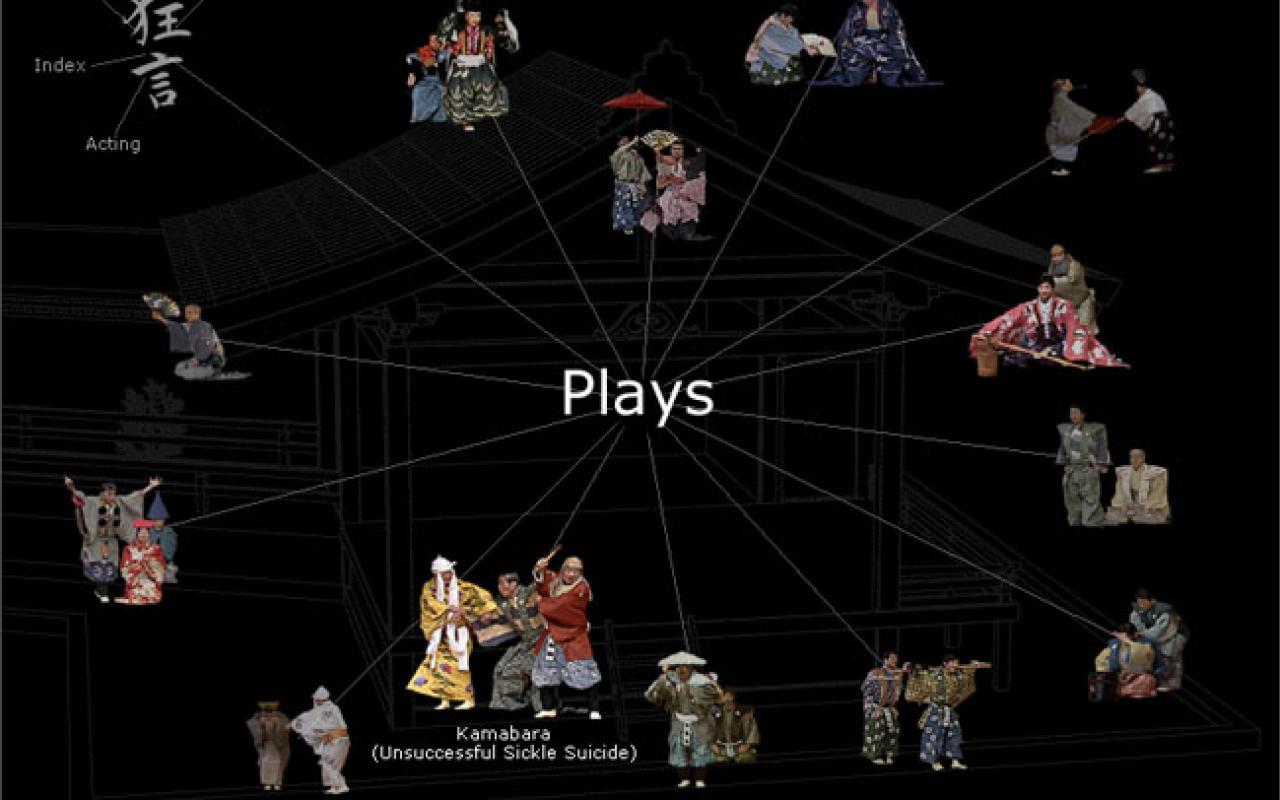
A DVD production on the theory and practice of Japanese Kyogen Theatre.
The multimedia studio at the Institute for Visual Media at the ZKM Karlsruhe has been realising highly acclaimed off- and online projects in the artistic-cultural field since 1994. Productions such as William Forsythe's digital dance archive or the CD-ROM magazine of interactive art "artintact" have received numerous awards and prizes. Now the ZKM presents its new DVD production "That's Kyogen" on a variety of Japanese Noh theatre.
Kyogen is a form of traditional Japanese theatre whose origins date back to the 14th century. Loosely translated, Kyogen means something like "crazy words in disarray". The plays usually caricature human weaknesses and turn the social order upside down. In short, a crazy world is held up to the mirror with equally crazy, paradoxical words and gestures. And so Kyogen art encompasses a wide range of comedic expression, from burlesque farce to acrobatic pantomime, from subtle wordplay to crude situation comedy.
The initiators of this project from Waseda University and Tokyo Media Connections will be present at this event and will give an introduction to the art of kyogen. The ZKM production team will show excerpts from the DVD-ROM, which presents the whole range of Kyogen theatre in various theoretical and practical chapters: Stage, characters, costumes and masks, instruments, movement sequences and step sequences, vocal means of expression, etc. The DVD video documents 13 central Kyogen pieces selected and performed by the grand master and most famous performer of Kyogen, Mansaku Nomura.
Although the kyogen tradition is still practised today, there are hardly any records or documentary material. This DVD production aims to close the gap. It opens up new possibilities to get to know and study this important style of traditional Japanese theatre.
The DVD production "That's Kyogen" is expected to be available in stores from spring 2001 (in Japanese and English language versions).
- Organization / Institution
- ZKM